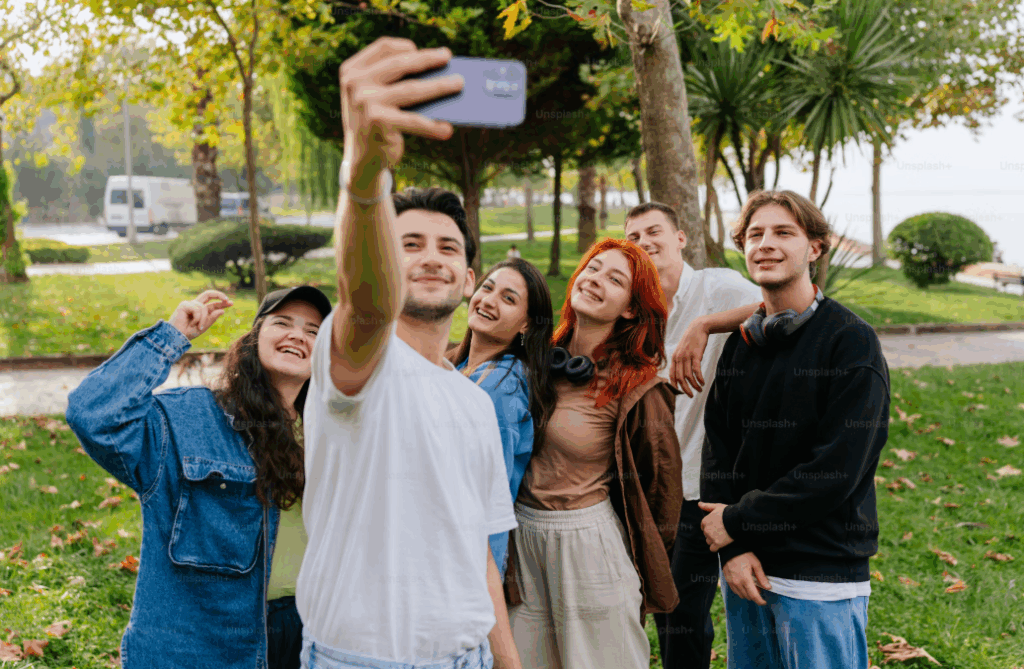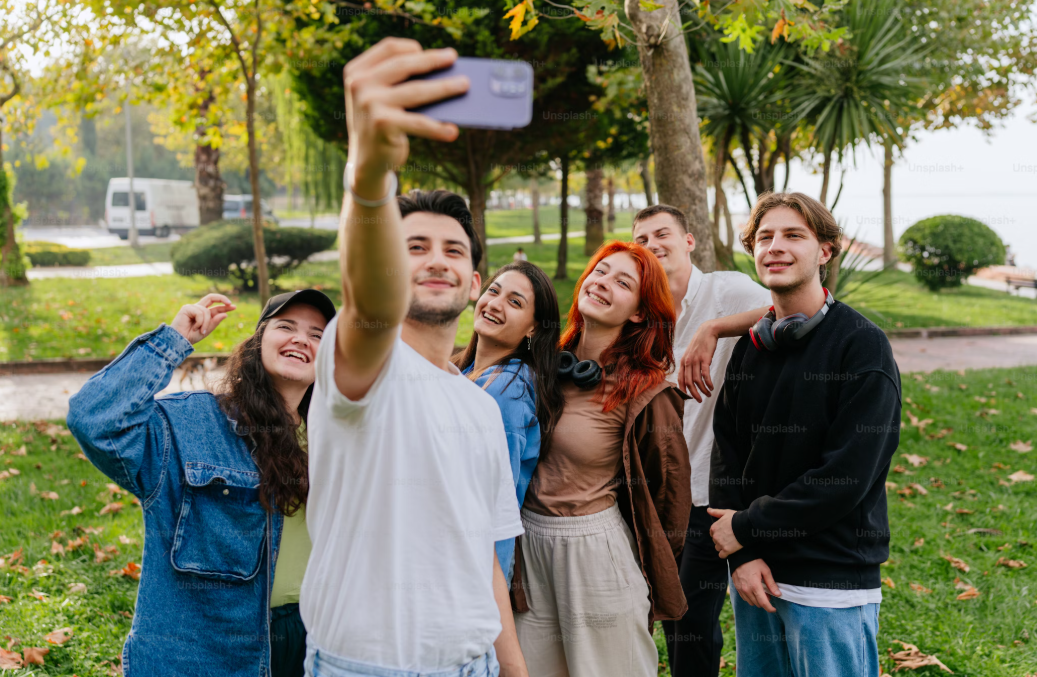
Influencers Gone Wild: When Social Media Stars Cross the Line
The world of social media has birthed a new breed of celebrity: the influencer. These individuals, armed with smartphones and a knack for captivating audiences, wield considerable power, shaping trends, driving sales, and influencing opinions. However, with great power comes great responsibility, and increasingly, we’re seeing examples of influencers gone wild, engaging in behavior that raises ethical questions, damages reputations, and even breaks the law. This article delves into the phenomenon of influencers gone wild, exploring the reasons behind their missteps, the consequences they face, and the broader implications for the influencer marketing industry.
The Allure and Peril of Influence
The influencer landscape is diverse, encompassing everything from beauty gurus and fitness experts to travel bloggers and gaming streamers. They build their platforms on authenticity and relatability, fostering a sense of connection with their followers. This connection is what makes them so valuable to brands, who see them as a direct line to their target audiences. However, the pressure to maintain this image, coupled with the intoxicating effects of online fame, can lead some influencers astray.
One of the primary drivers of influencers gone wild is the relentless pursuit of engagement. In the attention economy, views, likes, and shares are currency. This can incentivize influencers to push boundaries, engage in controversial stunts, or even fabricate content in an attempt to go viral. The line between authentic self-expression and calculated provocation often blurs, leading to missteps that can have serious repercussions.
Case Studies: Influencers Facing Backlash
Numerous examples illustrate the pitfalls of unchecked influence. Consider the case of influencers promoting fraudulent products or services. Often, they fail to adequately disclose their sponsored content, misleading their followers into believing they genuinely endorse the products. When these products turn out to be ineffective or even harmful, the influencer’s credibility takes a significant hit, and they may face legal action.
Another common occurrence is influencers engaging in insensitive or offensive behavior. This can range from making culturally insensitive comments to staging inappropriate photoshoots at sacred sites. In a hyper-connected world, these actions are quickly amplified and can spark widespread outrage, leading to boycotts and brand cancellations. The speed and intensity of online backlash can be devastating for an influencer’s career.
Then there are instances of influencers breaking the law. This could involve anything from reckless driving during a sponsored road trip to participating in illegal activities for content creation. Such actions not only endanger themselves and others but also set a terrible example for their impressionable followers.
The Fyre Festival Debacle: A Cautionary Tale
Perhaps the most infamous example of influencers gone wild is the Fyre Festival. This disastrous event, promoted heavily by social media influencers, promised a luxurious music festival experience on a private island in the Bahamas. However, the reality was far from the glamorous image portrayed online. Attendees arrived to find inadequate accommodations, substandard food, and a complete lack of organization. The festival was a complete failure, and the organizers, including Billy McFarland, were later convicted of fraud.
The Fyre Festival serves as a stark reminder of the power of influencer marketing and the potential for abuse. Many influencers who promoted the festival were unaware of the true state of affairs, but their endorsements nonetheless contributed to the widespread deception. The fallout from the Fyre Festival led to increased scrutiny of influencer marketing practices and calls for greater transparency and accountability.
The Consequences of Going Wild
The consequences of influencers gone wild can be severe, ranging from reputational damage to legal repercussions. Brands are increasingly wary of associating with influencers who have a history of questionable behavior, as it can damage their own brand image. Followers may lose trust in the influencer, leading to a decline in engagement and audience size.
In some cases, influencers may face legal action for misleading advertising, false endorsements, or illegal activities. Regulatory bodies like the Federal Trade Commission (FTC) have become more active in policing influencer marketing, issuing guidelines and levying fines for violations. The FTC requires influencers to clearly and conspicuously disclose their relationships with brands, ensuring that consumers are aware of sponsored content.
Beyond the immediate consequences, influencers gone wild can also contribute to a broader erosion of trust in social media. When audiences perceive influencers as being dishonest or manipulative, they become more skeptical of the entire platform. This can lead to a decline in user engagement and a shift towards more authentic and transparent forms of communication.
The Role of Brands and Agencies
Brands and agencies play a crucial role in preventing influencers from going wild. They have a responsibility to vet influencers thoroughly, ensuring that they align with their brand values and have a track record of ethical behavior. This includes conducting background checks, reviewing past content, and assessing their overall reputation.
It’s also important for brands and agencies to provide clear guidelines and expectations for influencers. This should include specific instructions on disclosure requirements, content standards, and ethical considerations. By setting clear boundaries, brands can help influencers avoid missteps and ensure that their campaigns are conducted responsibly.
Furthermore, brands and agencies should be prepared to take action if an influencer engages in inappropriate behavior. This could involve terminating the partnership, issuing a public statement, or even pursuing legal action. By demonstrating a commitment to ethical conduct, brands can send a clear message that they will not tolerate influencers gone wild.
The Future of Influencer Marketing
The influencer marketing industry is constantly evolving, and the rise of influencers gone wild has prompted a reevaluation of best practices. There is a growing emphasis on authenticity, transparency, and accountability. Influencers are increasingly expected to be genuine, honest, and responsible in their interactions with their followers.
One trend that is gaining traction is the rise of micro-influencers. These individuals have smaller, more niche audiences, but they often have higher engagement rates and stronger relationships with their followers. Micro-influencers are often seen as being more authentic and relatable than their larger counterparts, making them a valuable asset for brands seeking to build trust and credibility.
Another trend is the increasing use of data and analytics to measure the effectiveness of influencer campaigns. Brands are now able to track a wide range of metrics, including reach, engagement, and conversion rates. This allows them to better understand the impact of their influencer marketing efforts and make data-driven decisions about which influencers to partner with. Understanding the audience perception when an influencer is perceived as an influencer gone wild is also crucial.
Ultimately, the future of influencer marketing depends on the ability of influencers, brands, and agencies to work together to create a more ethical and responsible ecosystem. By prioritizing authenticity, transparency, and accountability, they can ensure that influencer marketing remains a valuable tool for connecting with audiences and driving business results.
Staying Grounded: Tips for Influencers
For influencers themselves, staying grounded and avoiding the pitfalls of going wild requires self-awareness, discipline, and a commitment to ethical conduct. Here are a few tips:
- Prioritize Authenticity: Focus on creating content that is genuine and reflects your true self. Don’t try to be someone you’re not just to gain followers.
- Be Transparent: Clearly disclose your relationships with brands and avoid making misleading claims about products or services.
- Think Before You Post: Consider the potential impact of your content and avoid engaging in behavior that could be offensive or harmful.
- Set Boundaries: Don’t feel pressured to share every aspect of your life online. Protect your privacy and prioritize your mental health.
- Seek Feedback: Surround yourself with trusted friends, family members, or mentors who can provide honest feedback and help you stay grounded.
- Remember Your Responsibility: Recognize that you have a platform and a voice, and use it to promote positive values and make a positive impact.
Conclusion: Navigating the Wild West of Influence
The world of influencer marketing is a dynamic and ever-evolving landscape. While it offers tremendous opportunities for both influencers and brands, it also presents significant challenges. The phenomenon of influencers gone wild serves as a cautionary tale, highlighting the importance of ethical conduct, transparency, and accountability. By learning from past mistakes and embracing best practices, the influencer marketing industry can create a more sustainable and responsible future. The key is to remember that influence is a privilege, not a right, and that it should be wielded with care and consideration. The actions of influencers gone wild are a reminder of what happens when this principle is forgotten. [See also: The Ethics of Influencer Marketing] [See also: How to Vet Influencers for Your Brand] [See also: The Future of Social Media Marketing]

